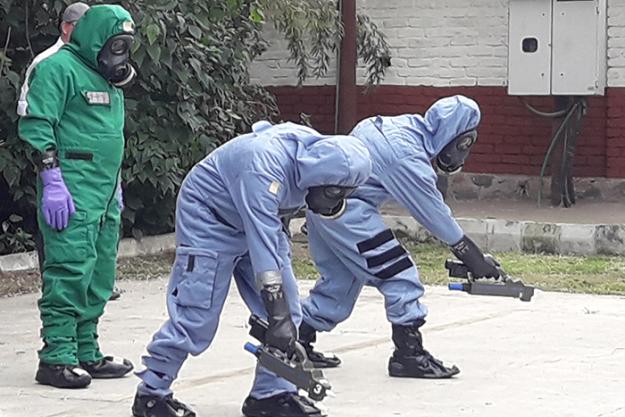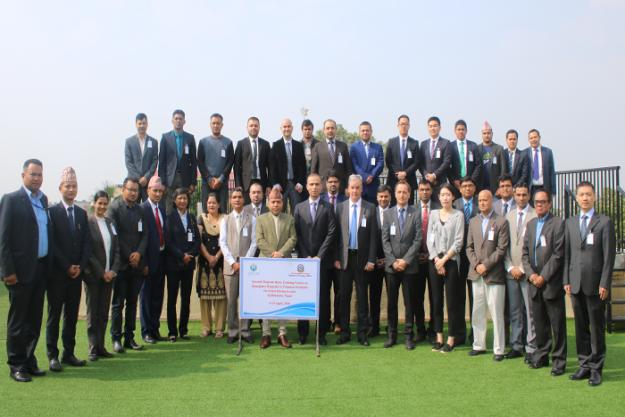
First Responders from Asia at a regional basic training course held in Kathmandu, Nepal
THE HAGUE, Netherlands — 20 April 2018 — First Responders from Asia enhanced their capabilities in emergency response to chemical incidents during a regional basic training course held in Kathmandu, Nepal from 9-13 April.
The training was jointly run by the Organisation for the Prohibition of Chemical Weapons (OPCW) and the Nepali National Authority for the Chemical Weapons Convention (CWC).
Addressing the course participants, Senior Program Officer of the OPCW’s Assistance and Protection Branch, Mr Shahriar Khateri, stated, “I hope that your participation in this training course will contribute to building preparedness in your respective states to respond timely and effectively to chemical incidents”.
The training enhanced the capacity of States Parties to respond to incidents involving both chemical warfare agents and toxic industrial chemicals. Furthermore, it provided the participants with knowledge on monitoring, detection and decontamination operations, as well as first aid in the field.

First Responders from Asia at a regional basic training course held in Kathmandu, Nepal
In addition to theoretical knowledge, the course also included practical sessions on working in a contaminated environment by training participants in the use of detection and protection equipment.
Twenty-nine participants represented 11 OPCW Member States: Bangladesh, China, India, Indonesia, Iran, Jordan, Republic of Korea, Nepal, Pakistan, Sri Lanka and Turkey.
These first responders will continue their training with the upcoming advanced course in the Republic of Korea in June, and a field exercise in Malaysia in October.
Background
As the implementing body for the Chemical Weapons Convention, the OPCW oversees the global endeavour to permanently and verifiably eliminate chemical weapons. Since the Convention’s entry into force in 1997 – and with its 192 States Parties – it is the most successful disarmament treaty eliminating an entire class of weapons of mass destruction.
Over 96 per cent of all chemical weapon stockpiles declared by possessor States have been destroyed under OPCW verification. For its extensive efforts in eliminating chemical weapons, the OPCW received the 2013 Nobel Prize for Peace.
